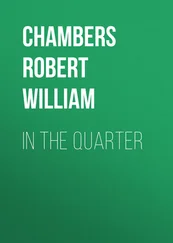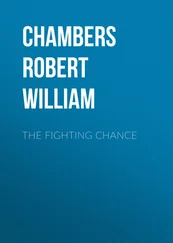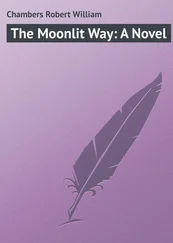Robert Chambers - The Gay Rebellion
Здесь есть возможность читать онлайн «Robert Chambers - The Gay Rebellion» — ознакомительный отрывок электронной книги совершенно бесплатно, а после прочтения отрывка купить полную версию. В некоторых случаях можно слушать аудио, скачать через торрент в формате fb2 и присутствует краткое содержание. Жанр: foreign_prose, на английском языке. Описание произведения, (предисловие) а так же отзывы посетителей доступны на портале библиотеки ЛибКат.
- Название:The Gay Rebellion
- Автор:
- Жанр:
- Год:неизвестен
- ISBN:нет данных
- Рейтинг книги:3 / 5. Голосов: 1
-
Избранное:Добавить в избранное
- Отзывы:
-
Ваша оценка:
- 60
- 1
- 2
- 3
- 4
- 5
The Gay Rebellion: краткое содержание, описание и аннотация
Предлагаем к чтению аннотацию, описание, краткое содержание или предисловие (зависит от того, что написал сам автор книги «The Gay Rebellion»). Если вы не нашли необходимую информацию о книге — напишите в комментариях, мы постараемся отыскать её.
The Gay Rebellion — читать онлайн ознакомительный отрывок
Ниже представлен текст книги, разбитый по страницам. Система сохранения места последней прочитанной страницы, позволяет с удобством читать онлайн бесплатно книгу «The Gay Rebellion», без необходимости каждый раз заново искать на чём Вы остановились. Поставьте закладку, и сможете в любой момент перейти на страницу, на которой закончили чтение.
Интервал:
Закладка:
"Ended – what?"
"You know," he said.
She may have known, for she stood very still, with head lowered and downcast eyes. As for Sayre, what common sense he possessed had gone. The thrilling unreality of it all – the exquisite irrational, illogical intoxication of the moment – her beauty – the mystery of her – and of the still, sunlit woods, had made of them both, and the forest world around them, an enchanted dream which he was living, every breath a rapture, every heart-beat an excited summons from the occult.
"Mr. Sayre," she said, with an effort, "I shall not tell you my name; but if you ever again should happen to think of me, think of my name as the name of the girl in that poem which I heard you reciting yesterday."
"Amourette?"
"Yes. That was the name of the poem and of the girl. You may call me Amourette – when you are thinking of me alone by yourself."
"Did you like that poem?"
"Why do you ask?"
"Because – I wrote it."
"You!" She lost a little of her colour.
"Yes," he said, "I wrote it – Amourette."
"Then – then I had better go away as fast as I can," she murmured.
With an enraptured smile verging perilously upon the infatuated, if not fatuous, he repeated her name aloud; and she looked at him out of soft grey eyes that seemed at once fascinated and distressed.
"Please let me go," she said.
He was not detaining her.
"Won't you?" she asked, pitifully.
"No, I won't," said William Sayre, suddenly invaded by an instinct that he possessed authority in the matter. "We must talk this thing over."
"Oh, but there isn't any use – really, truly there isn't! Won't you believe me?"
"No," he said as honestly as he could through the humming exaltation that sang in him until, to himself, he sounded like a beehive.
There was a fallen log all over moss behind her.
"We ought to be seated to properly consider this matter," he said.
"I must not think of it! I must go instantly."
When they were seated, and he had nearly twisted his head off trying to meet her downcast eyes, he resumed a normal and less parrot-like posture, and folded his arms portentously.
"To begin," he said, "I came here fishing. I heard a stick crack – "
She looked up.
" That was my fault. It was all my fault. I don't know how I ever came to do it. I never did such a thing in my life. We merely heard that you and Mr. Langdon were in the woods – "
" Who heard?"
"We. Never mind the others. I'll say that I heard you were here. And – and I took my – my net and came to – to – "
"To what?"
"To – investigate."
"Investigate what? Me ?"
"Y-yes. I can't explain. But I came, honestly, naturally, unsuspiciously. And as soon as I saw you I was quite sure that you were not what – what certain people wanted, even if you were the author of Amourette – "
" I was not what you wanted?" he repeated, bewildered.
"I mean that – that you were not what – what they required – "
"They? Who are they ? And what, in Heaven's name, did 'they' require?"
"I don't want to tell you, Mr. Sayre. All I shall say is that I knew immediately that they didn't want you , because you are not up to the University standard. And you won't understand that. I ought to have gone quietly away… I don't know why I didn't. I was so interested in listening to you recite, and in looking at you. I loved your poem, Amourette … And two hours slipped by – "
"You stood there in the bushes looking at me for two hours, and listening to my poem – and liking it?"
"Yes, I did… I don't know why… And then, somehow, without any apparent reason, I wanted you to see me .. without any apparent reason.. and so I stepped on a dry stick… And to-day I came back.. without any apparent reason… I don't know what on earth has happened to make me – make me – forget – "
"Forget what?"
"Everything – except – "
"Except what?"
She looked up at him with clear grey eyes, a trifle daunted.
"Forget everything except that I – like you, Mr. Sayre."
He said: "That is the sweetest and most fearless thing a woman ever said. I am absurdly happy over it."
She waited, looking down at her linked fingers.
"And," he said, "for the first time in all my life I have cared more for what a woman has said to me than I care for anything on earth."
There was a good deal of the poet in William Sayre.
"Do you mean it?" she asked, tremulously.
"I mean more."
"I – I think you had better not say – more."
"Why?"
"Because of what I told you. There is no use in your – your finding me – interesting."
"Are you married?" he asked, so guilelessly that she blushed and denied it with haste.
His head was spinning in a sea of pink clouds. Harps were playing somewhere; it may have been the breeze in the pines.
"Amourette," he repeated in a sort of divine daze.
"I am – going," she said, in a low voice.
"Do you desire to render me miserable for life?" he asked so seriously that at first she scarcely realised what he had said. Then blush and pallor came and went; she caught her breath, looked up at him, beseechingly.
"Everything is wrong," she said in the ghost of a voice. "Things are hurrying me – trying to drive me headlong. I must go. Let me go, now."
And she sat very still, and closed her eyes. A second later she opened them.
"Why did you come?" she asked almost fiercely. "There was no use in it! Why did you come into these woods for that foolish newspaper? By this time the Associated Press, the police, and the families of the men you are looking for have received letters from every one of the four missing young men, saying that they are perfectly well and happy and expect to return – after their honeymoons."
Flushed, excited, beautiful in her animation, she faced the astounded young man who stared at her wildly through his eye-glasses.
After a while he managed to ask whether she wished him to believe that these four young men had each eloped with their soul mates.
She bit her lip. "To be accurate," she said in a low voice, "somebody eloped with each one of them."
"How? I don't understand!"
"I don't wish you to… Good-bye."
"You mean," he demanded, incredulously, "that four girls ran away with these four big, hulking young men?"
"Practically."
"That's ridiculous! Besides, it's impossible! Besides – women don't run men off like cattle rustlers. Man is the active agent in elopements, woman the passive agent."
She did not answer.
"Isn't she?"
She made no reply.
He said: "Amourette, shall I illustrate what I mean – with you as the passive agent?"
The girl bent over a little, then with a sudden movement she dropped her head in her hands. A moment later he saw a single tear fall between her fingers.
He looked east, west, north, south, and finally up into the sky. Seeing nobody, the silly expression left his otherwise interesting face; a graver, gentler light grew in his eyes. And he put one arm around her supple waist.
"Something is dreadfully wrong," he said; "all this must be explained – our strange encounter, our speaking, our talking at cross purposes, our candid interest in each other – the sudden, swift, unfeigned friendship that was born the instant that our eyes encountered – "
"I know it. It was born. Oh, I know it. I know it, and I could not help it – somehow – somehow – "
"It – it was almost like – like – love at first sight," he whispered.
"It was – something like it – I am afraid – "
"Do you think it was love?"
Читать дальшеИнтервал:
Закладка:
Похожие книги на «The Gay Rebellion»
Представляем Вашему вниманию похожие книги на «The Gay Rebellion» списком для выбора. Мы отобрали схожую по названию и смыслу литературу в надежде предоставить читателям больше вариантов отыскать новые, интересные, ещё непрочитанные произведения.
Обсуждение, отзывы о книге «The Gay Rebellion» и просто собственные мнения читателей. Оставьте ваши комментарии, напишите, что Вы думаете о произведении, его смысле или главных героях. Укажите что конкретно понравилось, а что нет, и почему Вы так считаете.












